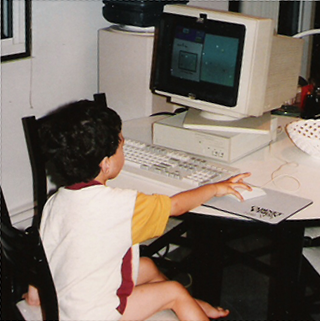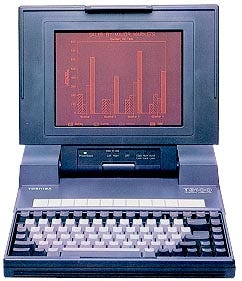On big decisions and the next two years.
This post was originally published on Medium in 2013.

Today I have the honor to announce a major step in my life—after several months of applications and a few weeks of heavy consideration, I’ll be taking at least 2 years off from Harvard in December to be a member of the Thiel 20 Under 20 Fellowship. The first of many thanks go to the Thiel Foundation for giving me this opportunity and giving me their stamp of approval—it’s been an amazing interview process and I couldn’t be happier to be a part of the Thiel Fellowship community.
It wasn’t an easy decision to make, but I think my situation is unique. I’ve wanted to work full-time on education for a while, and I’ve been enveloped in entrepreneurship for the past few years. My mom is a teacher and my dad is a self-employed programmer. I’ve been breathing education since I could walk and designed my first website in 4th grade. It’s about time I put those skills to good use.
After reflecting on where I’ve been and where I hope to be, it’s clear that 99% of where I am can be attributed to other people. Amazing people who took bets on me when they shouldn’t have, people who cared enough to reach out to me, people who I could call at any time for help. Tony Tjan, in his book Heart, Smarts, Guts, and Luck, helps entrepreneurs determine what their core skill set is, and by his assessment I’m overwhelmingly luck-dominant. Let me take this time, then, to thank everyone who has helped me to this point, and in doing so describe how I got here.
My mom came to this country in high school from Cyprus after having spent time in London. Her father was a farmer and construction worker and her mother worked with textiles sewing clothing. My dad studied computer science and accounting in Egypt, then spent several years as a farmhand and sous chef in Spain and France before coming to the United States. Here, he continued studying engineering and computer science, working full-time and going to school on nights and weekends. My parents met at the City University of New York and got married a few years later. They’re the hardest working people I know, and I wouldn’t be here today without the many sacrifices they made for my education.
By 1985 or so, my mom was a first-grade teacher in a New York City public school. (She still teaches in that same first-grade classroom, and has been teaching for 28 years.) Since both my parents worked full-time, I spent the first few years of my life in a crib in the back of her classroom. (I was a well-behaved baby.) I then enrolled in that same East Harlem, New York public school as a student. Through years of their hard work, long nights, and 4-hour commutes to and from Long Island into New York City, I was contacted as a fifth grader by an organization called Prep for Prep that helps minority students get accepted into private schools. After going through several steps of interviews and being accepted, I spent 14 months going to night classes studying U.S. History, Biology, Latin,and more. I wouldn’t be where I am today without Prep—thanks to Charles Guerrero, Katy Bordonaro, and the rest of the team there for all the work they do.
After what I still consider to be the hardest academic experience of my life, I was accepted to Collegiate School, a small all-boys school on the Upper West Side. I realized there that I loved my extracurriculars above all else. I organized an environmental conference for 1000+ attendees and a $15,000+ budget. Event planning is the closest job to being a CEO I know. Everything that can go wrong will go wrong, and you absolutely need to think on your feet. Collegiate gave me the freedom to explore what I was interested in—thank you to Mrs. Foley, Dr. Beall, Mr. Hill, Mr. Gordon, and the million other teachers there who were my biggest academic and professional critics. Collegiate was my launchpad to Harvard and I can’t wait to give back to it in every way I can.
I didn’t come to Harvard as an entrepreneur, but I knew I wanted to study computer science. This was the first computer I ever used:

My dad wrote a game that helped me learn the alphabet on that machine, and computers were always around the house since he was a programmer. I wrote my first program in Visual Basic and wrote my first HTML code back in 4th grade for my own little company, Blue Box Software (the logo was suspiciously similar to today’s Dropbox logo). I took two Harvard Summer School classes in computer science and was hooked since then.
Here at Harvard, I got involved with Hack Harvard and the Innovation Lab at just the right time. Interest in entrepreneurship was beginning to pick up, so I had the opportunity to learn from some of the best startup leaders around and help fellow students who were also interested in the tech world.
So, thank you to the Innovation Lab—Gordon, Neal, Kate—for your support and mentorship over the past few years. Thanks to Harvard for accelerating my growth and helping to introduce me to some of the brightest minds in technology. Thank you to the rest of my mentors—Hugo Van Vuuren, Nick and Tuan from Tivli, Andrew Rosenthal, Bilal and Nitesh at General Catalyst, and so many others—who have been sounding boards for all my crazy ideas and questions. Thanks to my friends and roommates—Sebastian, Matt, Will, Mike—for dealing with my late nights and craziness. Thanks to one of my best friends, Andrea Brettler, who has offered her advice and support since freshman year. Special thanks go to Peter Boyce, who has been my biggest supporter and harshest critic for the past 3 years, and Perry Hewitt, who offers the most sage advice and the wittiest jokes of anyone I know.
My work at Rough Draft Ventures over the past year has shown me how dedicated student entrepreneurs can be. After funding many of the best student ideas in Boston, it’s clear that Boston and New York are now tech hubs of their own. I grew up in New York and grew academically, professionally, and intellectually in Boston. Those cities are my roots, and I hope to be the bridge between this East Coast hub that’s rapidly growing and the storied Silicon Valley ecosystem that has so much to offer the students growing companies here in Boston. I will continue to work with Rough Draft and help students, and the fact that our partners are doing such diverse things is a testament to the types of students we’re looking to fund—people are willing to drop everything they’re doing and pursue an idea relentlessly.
I couldn’t be more excited for what the next two years hold.
Then the Popular Electronics article came out. Gates' friend Paul Allen ran through Harvard Square with the article to wave it in front of Gates' face and say, “Look, it’s going to happen! I told you this was going to happen! And we’re going to miss it!” Gates had to admit that his friend was right; it sure looked as though the “something” they had been looking for had found them. He immediately phoned MITS, claiming that he and his partner had a BASIC language usable on the Altair. When Ed Roberts, who had heard a lot of such promises, asked Gates when he could come to Albuquerque to demonstrate it, Gates looked at his childhood friend, took a deep breath, and said, “Oh, in two or three weeks.” Gates put down the receiver, turned to Allen and said: “I guess we should go buy a manual.” They went straight to an electronics shop and purchased Adam Osborne’s manual on the 8080.
- from Fire in the Valley: The Making of the Personal Computer
By Zach Hamed on May 9, 2013.
 zmh.org
zmh.org



